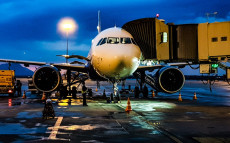- pathfindersAI
- Job Profile
Captains, Mates, and Pilots of Water Vessels
Summary
Captains, Mates, and Pilots of Water Vessels: Charting the Course for a Rewarding Career
Navigating across serene waters or steering through turbulent seas holds a blend of adventure, responsibility, and skill. Captains, mates, and pilots of water vessels play a critical role in ensuring smooth sailing for commercial, private, and military operations on the water. This essay delves into the fascinating world of these maritime professionals, outlining their duties, requisite skills, educational pathways, career prospects, and concluding insights.
What They Do
Captains, mates, and pilots of water vessels are the backbone of maritime navigation and operations. They are entrusted with steering and navigating vessels, ensuring safe passage for cargo and passengers. Captains take the helm in commanding the vessel, making crucial decisions on its course and operations, while mates assist the captain and supervise the deck crew. Pilots, on the other hand, specialize in navigating ships through challenging areas such as harbors and river passages, leveraging their intricate knowledge of local waterways. Each role demands precision, calm under pressure, and a commitment to safety.
Job Responsibilities
The job responsibilities of captains, mates, and pilots are as varied as the waters they navigate. Captains oversee the vessel's overall operations, including navigation, crew management, and adherence to maritime laws and safety regulations. They plan the journey, monitor the ship's position using nautical charts and electronic equipment, and make real-time decisions in response to changing conditions. Mates serve as the captain's right hand, managing the deck department, handling cargo operations, and ensuring the vessel's readiness for voyages. Pilots focus on ensuring the safe and efficient passage of ships through specific waterways, communicating with tugboats and harbor authorities, and utilizing their local knowledge to avoid hazards.
Essential Skills
Success in these nautical careers hinges on a blend of technical prowess, leadership, and problem-solving abilities. Captains, mates, and pilots must exhibit strong decision-making skills, as their judgment directly impacts the safety of the vessel and its crew. Leadership and teamwork are equally crucial, as they must effectively manage diverse crews and coordinate operations. A solid understanding of navigation tools and techniques is vital, along with the ability to stay calm and focused under pressure. Moreover, communication skills are essential for coordinating with other vessels, port authorities, and the crew. Proficiency in maritime regulations and safety protocols ensures compliance with international and local standards, upholding the integrity of maritime operations.
Educational Pathways
Becoming a captain, mate, or pilot typically requires a blend of formal education and hands-on experience. Many aspiring mariners start with a bachelor's degree in marine transportation or a related field, often through maritime academies that offer specialized training programs. Coursework covers navigation, ship handling, maritime laws, and safety protocols, providing a solid foundation for the technical aspects of the job. Gaining sea-time experience is critical, as practical, on-board training hones the skills required for bridge operations and leadership. In addition, obtaining relevant certifications, such as a Merchant Mariner Credential (MMC) from the United States Coast Guard, is a mandatory step in demonstrating competency and readiness. Advanced positions may require further qualifications or endorsements, emphasizing the need for ongoing professional development and adherence to stringent maritime standards.
Career Prospects
The demand for captains, mates, and pilots is closely tied to global trade, travel, and maritime industry trends. As international shipping continues to be the linchpin of global commerce, skilled mariners are vital for sustaining efficient and safe operations. Career prospects in this field can vary widely based on the type of vessels operated and specific maritime sectors, from commercial shipping lines and luxury cruise liners to local ferries and tugboats. Career advancement often stems from accumulating sea-time experience, excelling in leadership roles, and pursuing additional certifications. Opportunities for diversification exist, allowing experienced mariners to transition into shore-based roles, such as maritime safety inspectors, port managers, or maritime educators, broadening the horizon for career growth.
Conclusion
In conclusion, captains, mates, and pilots of water vessels serve as the quintessential guardians of maritime transit, guiding vessels through the vast and often unpredictable waters of our world. Their roles require a unique interplay of technical aptitude, leadership, and unwavering dedication to safety and efficiency. With a robust educational foundation, extensive hands-on experience, and a commitment to continuous learning, aspiring mariners can look forward to a fulfilling career characterized by adventure, responsibility, and the endless horizon of opportunity. Whether navigating mighty ocean liners or guiding vessels through treacherous straits, these maritime professionals make an indelible impact, charting the course for a vibrant and pivotal sector of the global economy.
Video
Compensation
| State | Median Salary | Median Hourly | Positions |
|---|---|---|---|
| AL | 99,590 | 47.88 | 330 |
| AK | 83,200 | 40.00 | 700 |
| AZ | 57,200 | 27.50 | 40 |
| CA | 70,780 | 34.03 | 1,750 |
| CT | 83,200 | 40.00 | 330 |
| DE | 77,890 | 37.45 | 80 |
| DC | 65,300 | 31.39 | 50 |
| FL | 67,640 | 32.52 | 5,010 |
| GA | 73,100 | 35.14 | 190 |
| HI | 71,820 | 34.53 | 570 |
| IL | 82,050 | 39.45 | 750 |
| IN | 82,060 | 39.45 | 610 |
| IA | 79,830 | 38.38 | 90 |
| KY | * | * | 1,550 |
| LA | 103,380 | 49.70 | 6,250 |
| ME | 67,200 | 32.31 | 240 |
| MD | 84,690 | 40.72 | 460 |
| MA | 61,830 | 29.73 | 560 |
| MI | 70,700 | 33.99 | 410 |
| MN | 93,630 | 45.02 | 130 |
| MS | 160,550 | 77.19 | 430 |
| MO | 65,500 | 31.49 | 470 |
| NH | 63,700 | 30.63 | 30 |
| NJ | 104,410 | 50.20 | 800 |
| NY | 81,800 | 39.33 | 1,760 |
| NC | 62,480 | 30.04 | 410 |
| OR | 81,060 | 38.97 | 360 |
| PA | 81,550 | 39.21 | 370 |
| RI | 60,240 | 28.96 | 120 |
| SC | 69,710 | 33.52 | 460 |
| TN | 107,910 | 51.88 | 830 |
| TX | 116,960 | 56.23 | 4,330 |
| VT | 63,350 | 30.46 | 40 |
| VA | 78,710 | 37.84 | 1,860 |
| WA | 102,750 | 49.40 | 1,500 |
| WV | 98,590 | 47.40 | 100 |
| WI | 63,250 | 30.41 | 180 |
Similar Occupations
In this area you will find other occupations that are close to the one you were viewing in tasks, knowledge and work environment. If the primary job profile you are viewing isn't quite to your liking, take a look around and see what else is available.
Basic and Premium Accounts have more alternative occupations available than the Free account.

Aircraft Cargo Handling Supervisors - 53-1041.00
Aircraft Cargo Handling Supervisors oversee the loading, unloading, and securement of cargo on aircraft, ensuring adherence to weight and balance specifications and safety protocols. They coordinate with ground crew and logistics personnel to optimize efficiency and compliance with aviation regulations.
-
$58,920/yr
Median Pay -
9,020
Number of Jobs

Airline Pilots, Copilots, and Flight Engineers - 53-2011.00
Airline pilots, copilots, and flight engineers operate and navigate commercial aircraft, ensuring safe and efficient air travel for passengers and cargo. They collaborate to monitor systems, communicate with air traffic control, and respond to in-flight emergencies.
-
$219,140/yr
Median Pay -
93,670
Number of Jobs